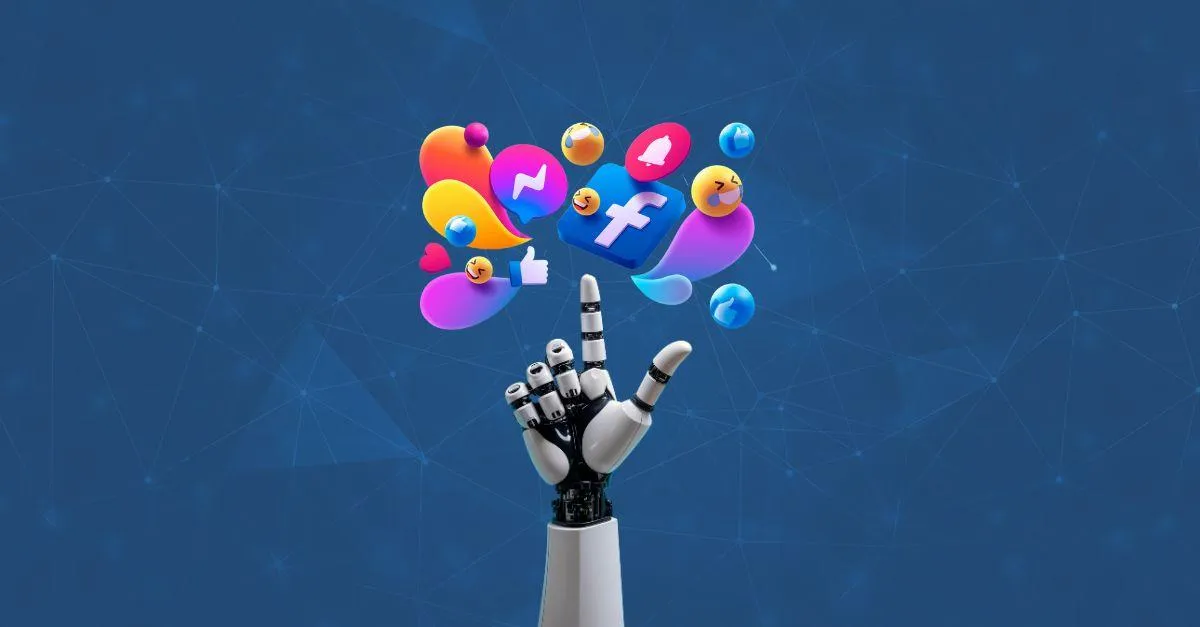
How Using AI for Marketing Helps You Work Less and Sell More
You know that overwhelming feeling when you’re handling too many things at once. You’re answering, endless emails, keeping up with social media, and trying to stay ahead of marketing trends while managing everything else on your plate.
It's exhausting, right? The constant back-and-forth can easily drain your energy. But what if you could offload some of that burden without compromising quality? Yes, we're talking about using AI for marketing.
Instead of spending your days on the same repetitive tasks, AI takes the load off by handling everything from customer outreach to content creation. In this post, you're going to explore how using AI for marketing doesn’t have to be difficult. After all, it’s about working smarter, not harder.
What Is AI for Marketing?
Using AI for marketing means leveraging the power of artificial intelligence to lift your marketing efforts, improve personalization, and make better decisions. AI helps marketers analyze vast amounts of data to find patterns, predict customer actions, and automate time-consuming tasks.
This results in more precise targeting, better customer experiences, and deeper insights into consumer preferences. Be it automating customer service with AI chatbots or offering personalized product recommendations, AI is quickly becoming a crucial element of current marketing strategies.
👉 Curious how AI can boost your marketing game? Check out How Small Businesses are Using AI for Marketing in 2025 to see how you can attract more customers with less effort!
How Can AI Be Used in Marketing?
AI has become a game-changer in marketing. It is helping businesses scale smarter and more efficiently. Let's look at some of its applications in marketing.

1. Personalization
One of the most impactful ways AI improves marketing is through personalization. By using AI algorithms, businesses can analyze customer data and customize their messaging, offers, and recommendations to suit each individual.
For example, Amazon uses AI to suggest products depending on past actions, which greatly boosts their sales. Here, the power of AI lies in its ability to predict customer preferences with high accuracy and personalize content across multiple channels.
2. Customer Service Automation
Chatbots and virtual assistants powered by AI are changing how companies engage with their customers. These systems handle customer queries 24/7, provide responses to customers, and even process transactions. Plus, these chatbots can solve problems, provide product recommendations, and answer FAQs.
Gartner predicts that by this year, 80% of customer service and support organizations will be adopting generative AI technology to boost agent productivity and enhance customer experiences. Adopting AI-powered chatbots can help businesses save time, boost customer satisfaction, and reduce overhead costs.
3. Predictive Analytics
AI excels in analyzing large amounts of data and drawing conclusions that humans might miss. Predictive analytics is one of the top uses of AI in marketing, where algorithms forecast future trends and consumer behavior. It helps businesses adjust their strategies ahead of time.
For instance, Netflix uses AI to predict what shows you might enjoy based on previous viewing habits. Similarly, marketing teams use predictive analytics to forecast product demand or customer turnover, which makes their campaigns more targeted and effective.
4. Content Creation
While AI can't replace the creativity and nuance of human content, it certainly serves as a valuable tool to help streamline the content creation process for marketers. AI-powered writing assistants, such as Copy.ai and Jasper.ai, help draft blog posts, social media updates, and even personalized email content.
These tools are useful particularly for creating product descriptions and social media posts, saving both time and energy. By automating such tasks, marketers can actually give time to strategy and creativity while getting consistent, high-quality content.
5. Data-Driven Decision Making
Data is the backbone of any successful marketing campaign. However, managing and interpreting that data to drive marketing decisions is where many businesses struggle. AI-powered tools such as Google Analytics and IBM Watson use AI to aid marketers in understanding customer behavior patterns and help them make decisions based on data.
For instance, an AI-powered tool can suggest which ads to run or which products to promote based on customer activity in real time. By continuously analyzing and optimizing marketing strategies, businesses can be sure that every move they make is backed by solid data.
Some Examples of AI in Marketing: How Top Companies Use It

AI is everywhere in marketing, and big brands are using it in ways we don’t even realize. Here are some well-known companies making the most of AI.
Google: Ever wondered how Google knows what ad to show you? That’s AI at work. Google Ads uses machine learning to figure out which ads will get the most clicks and show them to the right audience at the right time.
Apple: Apple integrates AI into its marketing through Siri, Face ID, and personalized recommendations on the App Store. Their AI-driven email and push notifications help them engage users based on their preferences.
Amazon: Amazon’s AI-driven recommendation engine is one of the best in the game. It learns from your browsing and purchase history to suggest products you’re more likely to purchase. It boosts both sales and customer satisfaction.
Top Benefits of Using AI in Marketing
Now that we know how AI works in marketing and its examples, let’s talk about why it’s a game-changer. The benefits go beyond automation and personalization; AI has the potential to make every aspect of marketing better and more effective.

1. Increased Marketing Efficiency
One of the most obvious advantages of AI is how it boosts efficiency. AI can automate tedious tasks like managing social media, generating content, handling email marketing, and providing customer service. For instance, AI can schedule and post content across multiple platforms, maintaining consistency without requiring manual effort.
Whether you’re handling paid ads or organic social media content, AI tools can automate your routine tasks. That's how it lets your marketing team focus on creative aspects and higher-value work.
2. Smarter Targeting & Higher ROI
AI’s ability to improve targeting and drive higher ROI is a huge win for marketers. It analyzes a large amount of customer data to identify the ideal audience segments for specific products and services. With AI-powered tools, businesses can target the most relevant customers, which optimizes ad spend and reduces wasted costs.
Take Facebook ads as an example. Facebook uses AI to make sure that your advertisements reach people who are most likely to interact with them. As a marketer, you can target audiences based on interests, demographics, and even behavior patterns for successful advertising.
3. Cost-Savings
According to a report, 37% of companies that use AI noted a cost decrease of 10-19% in marketing and sales functions. Traditionally, marketing campaigns require a significant investment in terms of time, effort, and budget.
However, AI offers cost-effective solutions that help businesses optimize their resources. Through automation, AI can perform tasks that would otherwise require manual help and largely reduce labor costs. Additionally, AI optimizes ad spending by targeting the most relevant audience, which improves conversion rates and reduces wasted ad spend.
👉 Want to work smarter, not harder? Read How AI for Small Business Can Save Time, Cut Costs, and Drive Sales to see how the right tools can transform your day-to-day!
How to Implement AI in Your Marketing Strategy
Implementing AI in your marketing isn't something challenging. Because you can start small, prioritize high-impact areas, and optimize over time. Here’s how to begin:
Identify Pain Points: Find time-consuming tasks such as customer service, content creation, or ad targeting.
Pick the Right Tools: Choose the right AI tools. For instance, you can use AI chatbots for support, Jasper for content, or SurferSEO for rankings.
Train AI for Accuracy: Provide quality data and refine AI-generated output to align with your brand's tone.
Monitor Performance: Track results, adjust settings, and optimize for better efficiency and engagement.
Balance AI & Human Touch: Automate repetitive tasks but keep personalization and key interactions purely human.
Challenges of Using AI in Marketing (And How to Avoid Them)
AI is powerful, no doubt, but it’s not perfect. It comes with challenges such as privacy issues, bias, and the risk of over-automation. If you understand these hurdles, it will help you use AI effectively while keeping your business marketing human and authentic.

1. Data Privacy Concerns
Consumers care about their data. AI relies on user information to personalize experiences, however, businesses must handle it responsibly. So, be transparent about data usage and comply with privacy laws like GDPR to build trust with your audience.
2. Initial Costs and Learning Curve
While some AI tools are free, most come with subscription fees. This initial investment can be a difficulty for many small businesses. The key is to start small, implement AI where it makes the biggest impact first, and then expand as you see results.
3. Risk of Over-Automation
AI can streamline marketing, but too much automation can feel robotic. Customers still want human interactions. So, use AI for efficiency, but keep a human touch in key areas such as responding to customer concerns or adding personality to your brand voice.
4. AI Bias and Accuracy Issues
AI learns from data, and if that data is flawed, the results will be too. Biased AI can misinterpret customer intent or exclude certain groups. That's why you need to regularly audit your AI tools to keep your marketing fair, accurate, and effective.
Final Word from Purely Startup
Marketing becomes tiring when you find yourself repeating the same tasks over and over. Start using AI for marketing. From personalized content to smarter ad targeting, AI makes marketing faster, better, and way less stressful. And no, it won’t replace you, it’s here to make your job easier and smoother.
At Purely Startup, we make AI simple for businesses. Whether it’s CRM optimization, SEO, or automation, we’ve got you covered. So, If you're ready to level up your marketing, let's talk: [email protected].


